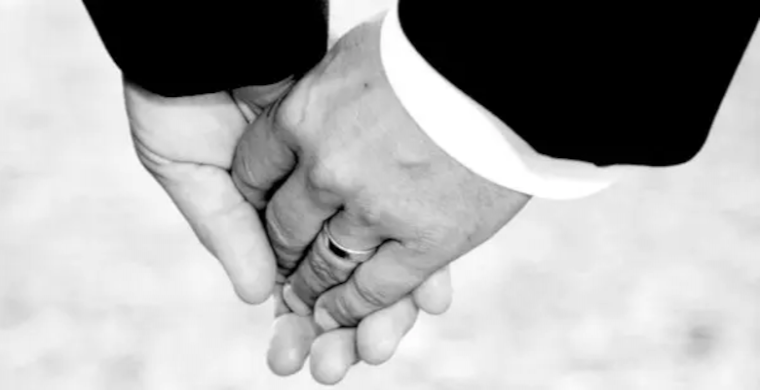Church of England heads for chaos over same-sex marriage
By Peter Mullen
https://www.conservativewoman.co.uk/
April 1, 2022
IN THE foreseeable future, the Church of England will announce that it intends to solemnise same-sex marriage. I have neither runes nor crystal ball, so how can I know this? Because the Church has as good as announced it in its publication Living in Love and Faith.
It begins with an apology 'for the damage and hurt caused to the LGBT community'. It proceeds with the launch of a programme of 'discussions and learning about gender identity' to be completed this year. The House of Bishops will bring the process of 'decision-making to a conclusion' and their conclusions will be put to a vote in the General Synod next year. The new Synod has been elected and this issue will dominate all its discussions. Has the Synod already been stacked with members who favour this innovation? I don't know -- not for certain anyway -- but I can hazard a guess based on the fact that more than a few known to me who applied to be candidates for election were turned down, and two have since told me: 'I am too traditionalist in my views.'
The whole procedure appears to be no more than a polite charade, for the presenter of LLF, Christopher Cocksworth (sic), Bishop of Coventry, has already declared that the Church's teaching on marriage is 'ripe for development'. A cynic might comment, 'What a giveaway!'
The huddling into groups has been going on for some time -- even in our parish in go-ahead Eastbourne. Now the participants are embarked on their 'decision-making', they will find a great deal of historical matter to help them towards what LLF refers to as their 'discernment'. For example, that both the Old and the New Testaments declare unambiguously that sexual relationships must be between one man and one woman for life. In particular, male homosexual acts are prohibited: 'Thou shalt not lie with mankind as with womankind' (Leviticus 18:22). And St Paul condemns 'Men who burn with lust one for the other.' (Romans 1:27). Those words are so plain as to be not beyond the understanding even of a modern bishop.
But Stephen Cottrell, Archbishop of York who, with the Archbishop of Canterbury, introduced LLF, claims to know better than the Bible. He has made his view very plain: 'What we can do is recognise that what we know now about human development and human sexuality requires us to look again at those texts to see what they are actually saying to our situation, for what we know now is not what was known then.'
In other words, our contemporary mores and fashions may annul and supersede the clear teaching of Scripture. 'What we know now' about human biology and psychology was not available to the author of Leviticus and the apostle Paul. Archbishops Rowan Williams and Justin Welby are at one with the present Archbishop of York in their frequently repeated assertion that 'the Church has a lot of catching-up to do with secular morality'. Once again, they are claiming to know better than St Paul who wrote to the early Christians, 'Be ye not conformed to this world.' (Romans 12:2).
So the church's solemnisation of homosexual marriage seems inevitable. But whichever way the vote goes, the result for the Church of England will be -- let me choose my next word carefully -- cataclysmic. Let us consider the options and their likely outcomes . . .
Suppose the decision goes in favour of this momentous change. Especially if the vote is close, the result will be endless palaver, with means and devices, addenda, assurances and conscience clauses forensically designed to accommodate opponents, notably in the worldwide Anglican Communion which in many places is much more conservative than members are here on home territory.
The view repeatedly articulated by Williams, Welby and Cottrell -- that the church must catch up with secular morality -- amounts to an acknowledgement that a national church cannot escape becoming marginalised when it is out of kilter with what most of the English people believe and practise. Out there, as they say on the BBC, the moral issue over complete equality for homosexuals has long been settled.
In my view, for what it's worth, I believe the C of E will permit the solemnisation of same-sex marriage. I have some sympathy for the Synod: opinions being so utterly divided, there will be a big bust-up. If the decision is Yes, dissidents who hold to the traditional morality will leave. If the decision is No, those who voted Yes will either leave or else they will disobey the ruling and chaos will ensue.
There are powerful arguments on both sides. I would only ask one thing: for God's sake, give us a clear ruling. A wishy-washy, halfway house policy which says no to same-sex weddings but offers homosexual couples a church blessing is a cop-out: it is irrational, for it fails to understand the church's theological doctrine of marriage.
For the church does not marry the couple -- whether they are straight or gay. The couple marry each other by their vows. The groom does not say, 'The priest will now marry us' but 'With his ring I thee wed'. The church's role in this is publicly to bear witness to the fact that a new marriage has taken place and to conclude with a blessing.
In the apprehension of the turmoil that is now inevitable, all I can suggest is 'Let us pray . . .'














